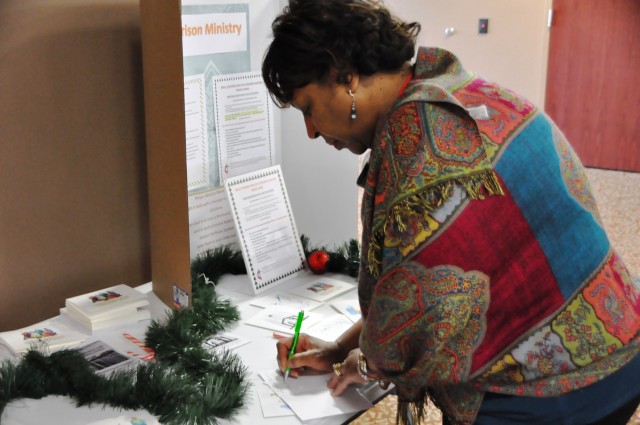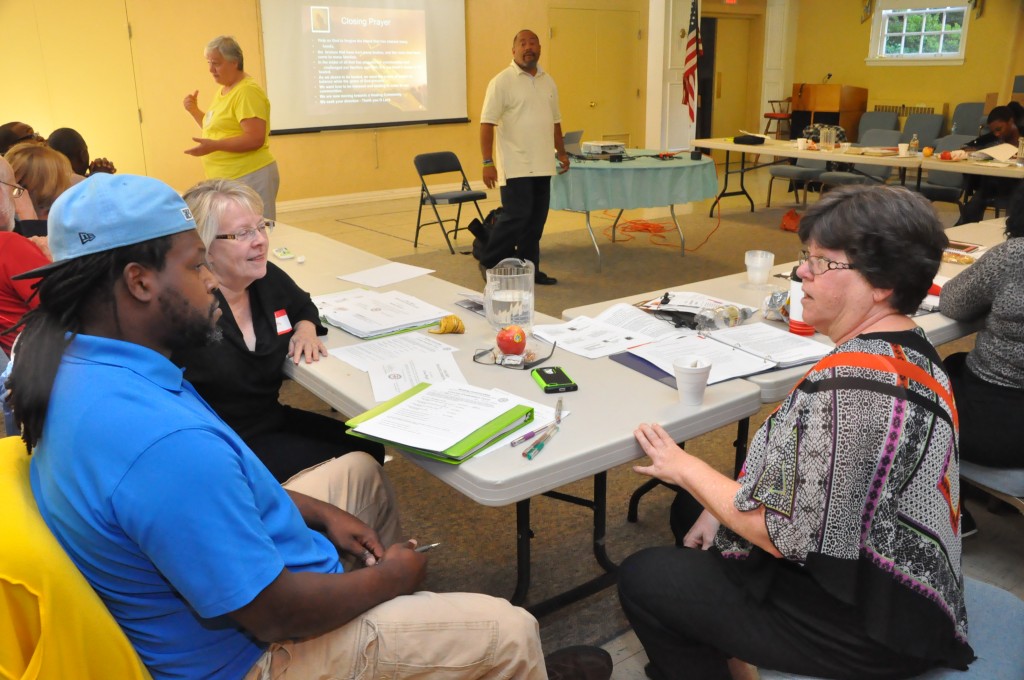Nearly 20 churches across five districts report involvement in prison ministries and restorative justice efforts, ranging from visitations, Bible studies and Kairos (Emmaus) programs, to providing necessities and assisting parolees with job searches, computer skills training and other needs.
The Eastern PA Conference’s Prison Ministry & Restorative Justice (PMRJ) Team applauds those efforts. But it wants to involve more people in ministries to foster hope, healing and possibly transformation in the lives of prison inmates, returning citizens and communities affected by crime and the criminal justice system.
Its newest endeavors, initiated this fall, were to introduce the Healing Communities initiative to interested churches through a training event Oct. 10, and to invite people everywhere to sign Christmas cards for inmates, many of whom languish in loneliness and despair.
Healing Communities is a national program that offers “a framework” for congregations to adapt for creating restorative justice ministries with current and former inmates, their families and others affected by their crimes and incarceration. The training encourages clergy and laity to identify needs, mobilize existing resources and develop “Stations of Hope” for struggling persons.
The daylong training drew about 20 participants from 11 conference churches (see the list on our Website) and two non-United Methodist churches. Co-sponsored with the conference Church & Society and Health & Healing ministries, it was led by PMRJ team member Linda Van Til and Doug Walker, National Coordinator of Criminal Justice Reform for the General Board of Church & Society.
Walker leads trainings and resources conferences across the U.S. on various criminal justice issues and initiatives. He and Van Til helped attendees understand how the system works and the roles of clergy and laity in creating Healing Communities through prayer, mentoring, advocacy and outreach efforts.
Through hard data but also real-life stories, they examined challenges facing inmates, their families and their victims. They also learned about working with prison officials and chaplains, and how to support acts of forgiveness, accountability, restitution and reconciliation. Related concerns included sentencing inequities, prison overcrowding, solitary confinement and lasting consequences ex-offenders face after having served their sentences.
The Christmas Card Project offered a less intense outreach for people who sympathize with the loneliness many inmates experience, especially those who lack communication with family or friends and barely witness any hint of Christmas celebration in their bleak confines.
Enlarging a 2014 effort, the PMRJ team worked hard to create appropriate, Christian nativity cards that would satisfy prison officials’ rules. They circulated them widely–in person and via the conference Website–so that individuals, groups and churches everywhere could offer caring words of encouragement along with a first-name-only signature.
More than 5,000 signed and approved cards were collected, including 265 at the Annual Conference Adjourned Session Nov. 14. After they are screened for compliance they will be given to grateful inmates in six Eastern PA counties. “The PMRJ team thanks everyone who participated,” said chairwoman Marilyn Schneider. “We hope to repeat this worthwhile ministry again in 2016.”
Eastern PA Conference Churches participating in the Healing Communities training event:
- Church of the Open Door, Kennett Square
- Conshohocken UMC
- Elam UMC
- Grove UMC, West Chester
- Hopewell UMC, Downingtown
- Lansdale UMC
- Lititz UMC
- Royersford UMC
- Salem UMC, Springtown
- Sayres Memorial UMC, Philadelphia
- St. Matthew’s UMC of Valley Forge


